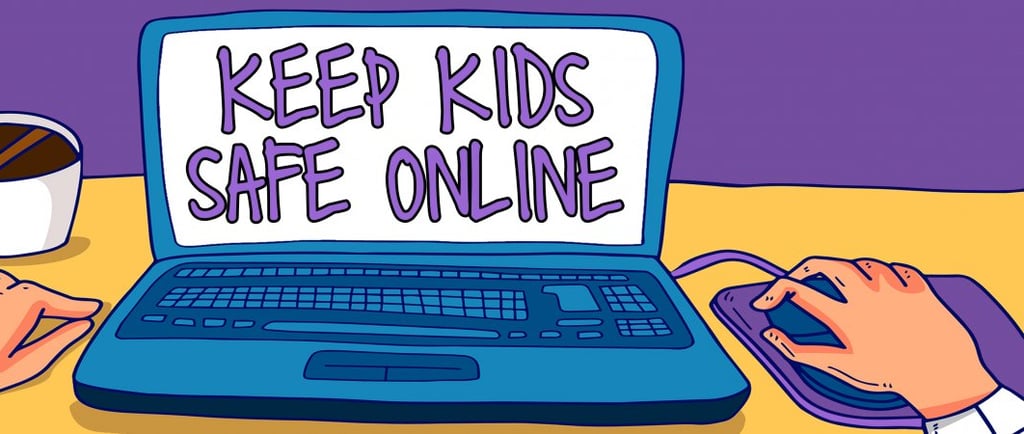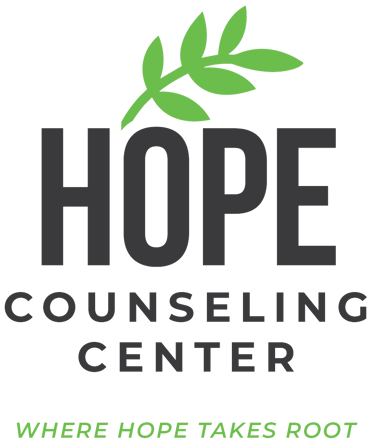Equipping our Children to be Safe Online
Navigating the digital world is one of the biggest challenges facing parents today. As a new dad, I’m diving into the topic of online safety for kids, drawing on insights from the Kids Online Health and Safety Task Force (KOHS). In this blog post, we explore the risks and benefits of social media, provide practical tips and resources for safeguarding our children, and reflect on the vital role caregivers play in guiding their little ones through the complex landscape of technology. Whether you’re a first-time parent or have been raising kids for years, this guide aims to equip you with the tools you need to help your children thrive safely online.
MENTAL HEALTHCHILDREN
Matthew Vermillion, MS, PLPC
9/4/20244 min read


Equipping our Children to be Safe Online
Being a new father myself, an exciting new chapter is unfolding. My wife and I have the privilege (and monumental responsibility) of guiding a little one through life. Many are the responsibilities of a parent or legal guardian, whether it is your first kiddo or you have been caring for children for a long time.
While it is not an exhaustive list, a few ways caregivers invest in their kids are by educating, equipping, and empowering them, providing support, disciplining them when necessary, and safeguarding them.
Like many other parents, I want to focus on safeguarding our children, particularly in the realm of technology, being online, and using social media. Though my child is nowhere near this topic developmentally, many other families are in the trenches of figuring this out in real-time. So, for my preparation and perhaps for your guidance, I want to look at the Recommendations and Best Practices for Safe Internet Use announcement made by the Kids Online Health and Safety Task Force (KOHS).
Who?
In case you are unfamiliar with it, the KOHS is a group founded under the current presidential administration. It is co-led by other federal agencies and administrations like the U.S. Department of Health and Human Services (HHS), Substance Abuse and Mental Health Services Administration (SAMHSA), and the U.S. Department of Commerce’s (DOC) National Telecommunications and Information Administration (NTIA).
Leaders from each of these organizations have come together to develop the task force with a mission in mind to protect the mental health, safety, and privacy of youth online. The federal government has made previous efforts to address the well-being and safety of children online in recent years, of note being the Surgeon General’s Advisory on Social Media in May of 2023. While the KOHS intends to conduct further research on similar topics and make recommended next steps for policymakers and key stakeholders, our time together will be spent focusing on their resources for parents and caregivers.
What’s the Problem?
You may be asking yourself, “Is social media really something to be concerned about? I mean, everyone uses it, so it can’t be all bad.” You would be partially correct in that the vast majority of youth use social media. In the aforementioned advisory from Surgeon General Dr. Vivek Murthy, we see a remarkably high prevalence of social media use in young people ages 13-17 at 95%. Also, approximately a third of teens report using social media “almost constantly.” For some young people around us, social media use is not only frequent but all-consuming - and we haven't even scratched the surface in terms of content or what it is they’re looking at.
Now is a good moment to pause and check my bias when it comes to technology. Up to this point, it may sound like I’m not giving social media a fair shake; I use it too, after all. My intention is not to demonize social media, but I do have a fervent value in protecting my child at all costs, and if there is any reason to believe social media consumption may pose a risk, I want to know about it. Rather than going off of my personal anecdotes, let’s look at the risks and benefits outlined in the KOHS report.
Primary developmental tasks occurring during childhood and adolescence, such as identity development, exploration, and relationship enhancement, can be both built up and undermined by content from online platforms. Current literature is inconclusive and, at times, contradictory, hence the need for future research. Some findings include possible benefits of social media use, such as fostering connectedness, combating isolation, experiencing learning opportunities, self-expression, and even civic engagement.
These potential benefits should give parents and caregivers a sense of optimism about their children's online experiences. Other findings reported in research articles suggest there is a risk for social comparison, displacement of other activities, interference with attention and learning, sleep disruption, overuse and problematic use, and sexual exploitation and abuse. Whether or not social media has a net positive or net negative impact is to be determined and beyond the scope of this blog. Until we reach a verdict, vigilant parents and caregivers tread cautiously as we manage media in our homes.
Practical Tools for Parents and Caregivers
Now, if you have read this far, you have made it to the meat and potatoes of the blog: the tangible resources you can walk away with that guide your next conversation with your children about social media. The good news is that a lot of resources are readily available.
If the report is too cumbersome of a read for you, there are bite-sized PDFs for topics such as essential skills for children ten and younger, conversation starters for families of tweens and teens, a quick fact sheet on all the information discussed thus far, and more. All of this can be found by following the first hyperlink in this blog post or by clicking here. Whether you are trying to develop a family media plan, want to learn what degree of technology integration is developmentally appropriate for your children, or are simply looking for the words to start the conversation with your teenager - look no further! They’ve already done the heavy lifting!
Now, remember in the beginning when I mentioned how it’s a monumental responsibility to guide our children? Our kids depend on us to give them a structure to be healthy and well. It may require humility on your part to reflect and consider how you interact with social media and what you model for your children. Nobody does this perfectly, but I hope you feel equipped for the task.
So, knowing what you know now, what will you choose to do next? My encouragement from one parent to another, you got this.
Matthew Vermillion, MS, PLPC

Contact Our Therapy Center
Address
1232 Branson Hills Parkway, Suite 104
Branson, MO 65616
Monday - Friday: 8:00 AM - 5:00 PM
6 PM closings on occasion
Saturday/Sunday: Closed
Contact Us
417-336-9355
info@hopecounselingmo.org
